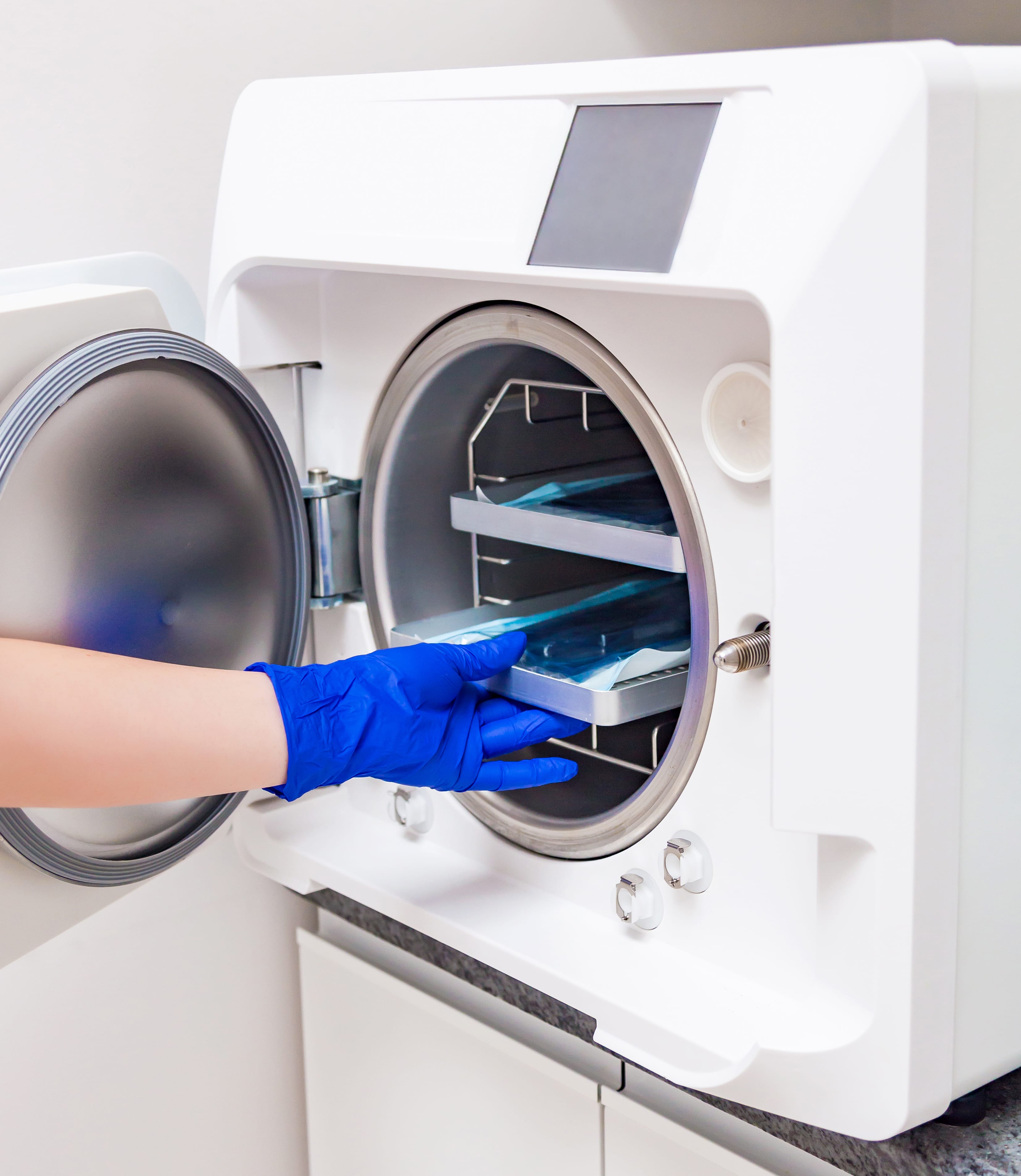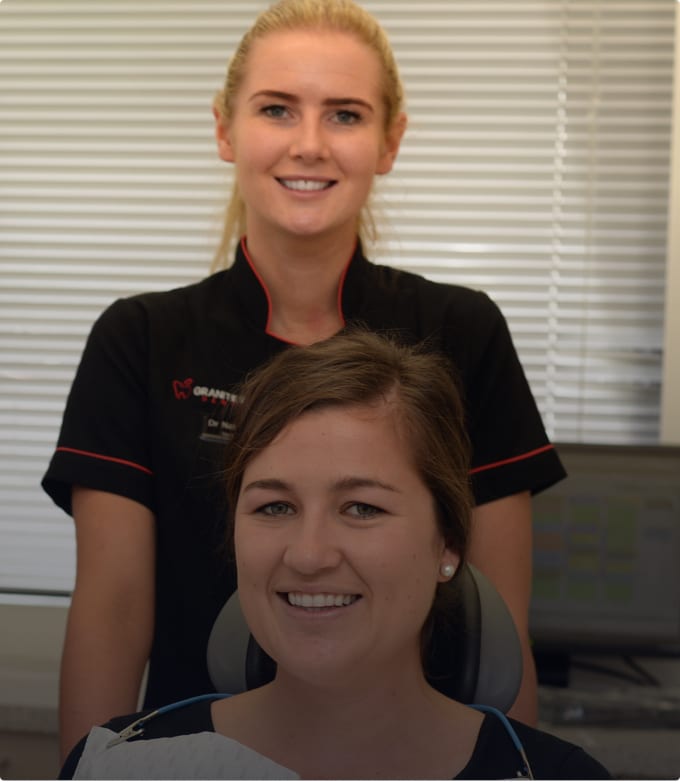
Dental Sedation
Why book with us as your sedation dentist?
At Granite Belt Dental, your comfort while undergoing treatment is our highest priority which is why our sedation dentists will ensure you are taken care of. At every stage of treatment we will explain each step and answer any questions you might have to help put you at ease. Our approachable team are focused on delivering the highest quality of treatment in a relaxed and friendly environment. However, we do understand that sometimes a patient’s anxiety around a dental visit might be more pronounced. In these situations, our caring team may be able to assist through the use of sedation. There are medical and procedural considerations when undergoing sedation. This means that it is not always appropriate in all circumstances, so talk to one of our dentists to see if this right for your needs.
Contact us today for more information or book your appointment online now.
granite belt dental
Other treatments
We’re human& we’re here to help
Fill out this contact form and we’ll be in touch
Dental Work Under General Anesthetic
Everything You Should Know About Dental Work Under General Anesthetic
At Granite Belt Dental, your comfort while undergoing treatment is our highest priority. At every stage of treatment, we will explain each step and answer any questions you might have to help put you at ease. Our approachable team focuses on delivering the highest quality of treatment in a relaxed, friendly environment. However, we understand that sometimes a patient’s anxiety around a dental visit might be more pronounced. In these situations, our caring team may be able to assist through the use of sedation. There are medical and procedural considerations when using undergoing sedation. This means it’s not always appropriate in all circumstances, so talk to one of our dentists to see if dental work under general anesthetic is right for you.
General Anesthetic Vs Local Anesthetic
When enquiring about dental treatments under general anesthesia, many people confuse it with local anesthesia, so we’re here to let you in on the key differences between the two, so you understand precisely what you’re asking from your dentist.
- General anesthesia causes you to lose consciousness. General anesthesia is typically used for more significant dental procedures and surgeries such as wisdom teeth extractions and implant placement. On the other hand, local anesthesia is used far more regularly for simple procedures such as fillings, root canals, and simple extractions.
- General anesthesia requires a medical anesthetist. Only qualified medical professionals can put someone under a general anesthetic, whereas a qualified dentist can apply a local anesthetic. If you need a general anesthetic for dental work, you’ll need to wait for an appointment where an anesthetist is available.
- You might feel a bit groggy after general anesthesia. Some people regain consciousness and feel fine after a general anesthetic, but others feel groggy, nauseous, and sore. As a person’s reaction to general anesthesia is unpredictable, you can’t drive after a procedure requiring general anesthesia. However, if you are receiving local anesthesia, it wears off after a couple of hours and has little to no side effects. You can drive, return to work, and feel relatively normal immediately after the procedure.


When Is General Anesthetic Used In Dentistry?
A general anesthetic isn’t used in day-to-day dentistry and is typically reserved for very specific procedures such as;


- Wisdom tooth extractions. Due to the location of wisdom teeth, it can be uncomfortable for some patients to have them extracted under local anesthetic, so they will typically see a general anesthetic dentist for the procedure.
- Complex extractions.If a tooth hasn’t yet erupted or has broken below the gum line, it will require a complex extraction, typically involving a small gum incision. Many dentists will offer general anesthesia for these procedures if there’s a chance the patient will be anxious or in any pain.
- Implant placement. Many patients feel more comfortable having implants placed under general anesthetic, but this procedure can also be carried out under local anesthesia for those who aren’t particularly anxious or nervous.
- Children’s dental. Sometimes, children require complex dental procedures. Adults may be fine with a local anesthetic for these treatments, but at Granite Belt Dental, we do everything we can to prevent children from developing dental anxiety. If we think a procedure may scare or traumatise them, we suggest using a general anesthetic to ensure they don’t develop any fear or nervousness.
- Dental anxiety. Some of our patients have very acute anxieties and fears about dental visits and procedures. More often than not, dental anxiety is formed in childhood and caused by a negative or painful experience. It’s very easy for dental anxiety to develop, but it is difficult to alleviate, so some dentists offer general anesthetic to patients with severe anxiety.
What To Expect When You Receive Dental Treatment Under General Anesthetic
If you’re preparing for dental work under a general anesthetic, you might be wondering what you should expect before and after the procedure. At Granite Belt Dental, we like our patients to be completely prepared for any dental treatment, so we’ve listed a few things you can expect from a general anesthetic.
- Come in and get comfortable. Before starting the procedure, we’ll run through the steps again and introduce you to the anesthetist. They’ll be able to answer any of your last-minute questions, and they’ll start preparing you for sedation.
- The anesthetist will deliver the sedative. Whether the general anesthesia is delivered via injection or mask, you’ll drift off into a sleep-like state where you’ll be completely relaxed. You will have total amnesia of the procedure, so you won’t feel or remember anything.
- Your dentist will complete the required work. While the anesthetist monitors your breathing, temperature, and blood pressure, your dentist will perform the procedure.
- You’ll wake up. Once your dentist has finished the procedure, your anesthetist will gradually reverse the medication, slowly waking you from your sleep. You’ll likely feel disoriented and confused when you wake up, but those feelings will soon pass. Some people experience side effects such as nausea, sore throat, aching muscles, shivering, and drowsiness. You may also experience pain in the location of the surgery as the anesthetic wears off, so make sure to discuss pain management solutions with your dentist.
- Your anesthetist may monitor you for a little bit longer. Ultimately, your anesthetist needs to make sure you feel okay and haven’t experienced any unusual adverse reactions to the sedative. They may ask you to stay in the recovery room for a little bit to make sure you’re okay. You won’t be able to drive yourself home, so once the dentist and anesthetist are sure you’re recovering well, they’ll release you to your friend/loved one to drive you home.
- You can go about your day. After the anesthetic wears off, you should be okay to go about your day-to-day activities. You may experience pain in your mouth or jaw from the procedure for a few days afterwards, but this will eventually subside and can be managed with over-the-counter painkillers.


If You Need Dental Work Under General Anesthetic, Granite Belt Dental Can Help
At Granite Belt Dental, we’re proud to do things a little differently. We understand that dental visits can be a little overwhelming, so our team of qualified professionals do everything possible to create a calm, relaxing environment. Our state-of-the-art facility caters to all your dental needs, from routine check-ups to emergency dental situations. The team at Granite Belt Dental are passionate about providing comprehensive dental services to everyone who walks through our doors, and we’ll do our best to make sure your time in the chair is comfortable. If you’re looking for a professional who will take care of your dental work under anesthetic, contact Granite Belt Dental today.


